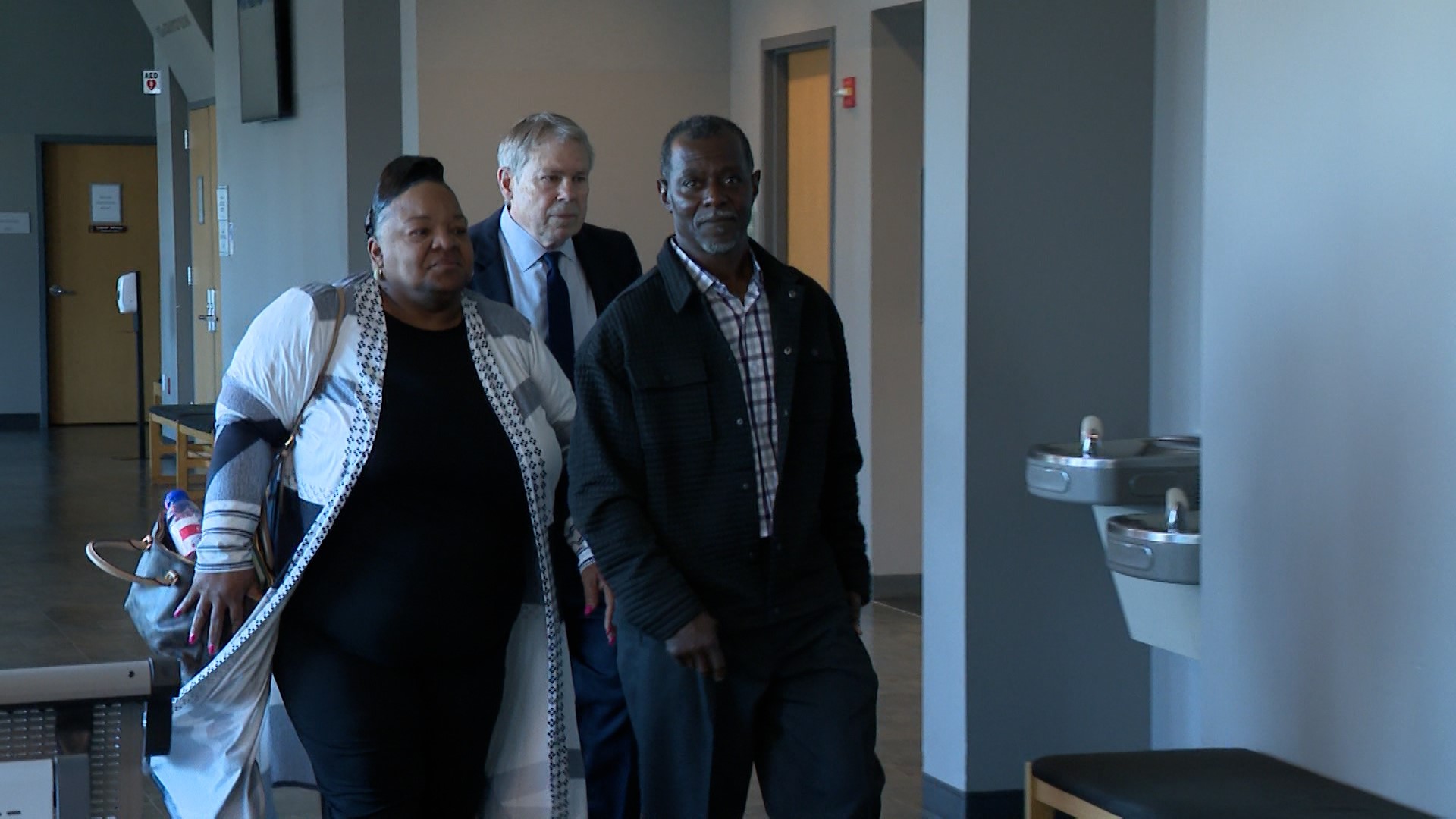AUSTIN, Texas — A man who spent 30 years in prison for a 1991 murder is looking to be exonerated.
On Friday morning, a Travis County court wrapped up a two-day hearing for Allen Andre Causey, who was convicted for the 1991 murder of 21-year-old Anita Byington in East Austin.
Causey’s attorneys maintain that he was coerced into giving a confession by the homicide detectives at the time. This came during the “Polanco Era,” when Austin Police Det. Hector Polanco allegedly coerced several people into giving false confessions.
Both the Travis County District Attorney’s Office and Causey’s attorney think there is a different man at fault for the murder. This man was with Byington and four other friends earlier on the night she was killed. Causey’s attorney said that by proving that man’s guilt, it will not only bring justice to Causey, but also the Byington family.
“We’re trying to obtain closure for them, as well as identifying – which I think we’ve done – and eventually convincing the actual perpetrator of this horrible crime,” Mike Ware, Causey’s attorney and the executive director of the Innocence Project of Texas, said.
But some members of the Byington family disagree. They maintain that Causey is guilty and say one of their biggest frustrations is the way they believe this hearing has been handled.
“It’s one-sided,” Kristina Byington, Anita Byington's cousin said. “A lot of questions not asked of the witnesses. You know, they’re in my head, I’m writing them down, ‘What about this? What about this?’”
On Friday, Causey’s defense brought in Shannon May, a forensic scientist with the Texas Department of Public Safety (DPS). She testified that the other man’s DNA profile was identified through a CODIS (Combined DNA Identification System) hit from a sexual assault in Harris County in 2021.
May's department was then able to find that his DNA profile was consistent with a profile created in 2000 for an attempted sexual assault he was responsible for. That same profile also had a connection to Byington’s murder in 1991. DNA testing found his sperm cells on Byington’s clothes.
Causey’s defense also brought Gabrielle Jenkin, the other man's sexual assault victim from 2021. She testified that after walking home from a party, she attempted to get a ride home from the man, but he took her to his house and raped her.
When the assault happened in 2021, Jenkin told police the man's address, but his son answered the door. They took a DNA sample of the son, and since his DNA was not consistent with the one collected from Jenkin's rape kit, the case went cold. It wasn’t until December 2023 that police told Jenkin that they found a match for the DNA, and she was able to identify him.
However, Travis County Judge Chantal Eldridge clarified that even though both the DA’s office and Causey’s attorneys have proven that this man is responsible for these other assaults, that doesn’t automatically exonerate Causey. She said that before oral arguments begin, attorneys will have to do a better job of proving the evidence that would exonerate Causey.
There are also a number of detectives and investigators that the judge wasn’t able to hear from during the hearing that she said would be important to address. Her other concern is with the defense’s argument that this other man committed the murder alone.
Eldridge said there is evidence of an accomplice, which Causey even mentioned in his written confession, saying his friend, Bobby Harrell, was involved in the murder. But Causey’s attorney thinks they’ll be able to disprove it.
“There’s absolutely no evidence of that. I mean, how do you argue against something of which there was no evidence of? In which, in my opinion, [was] a highly, highly unlikely theory to begin with,” Ware said.
The court has set oral arguments for this case on Friday, April 26. The defense plans to rest their case on that day as well.

